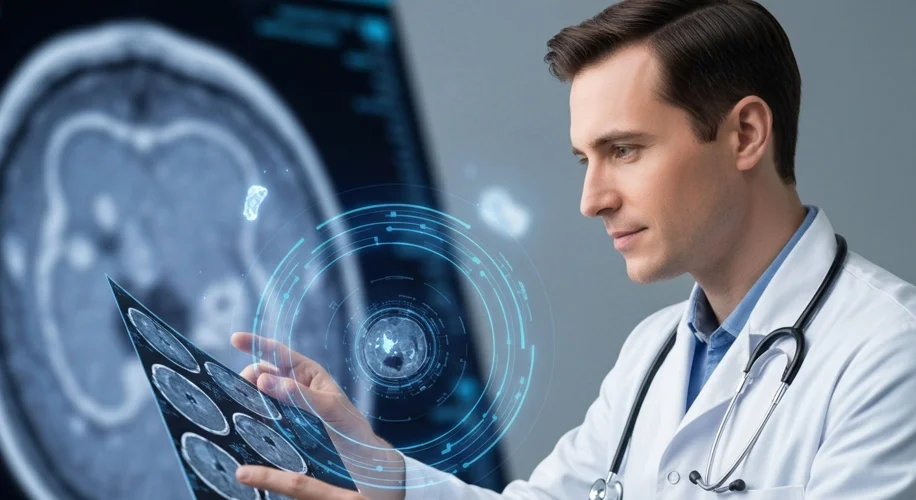It’s fascinating, and honestly a little concerning, to see how quickly artificial intelligence is weaving itself into the fabric of healthcare. We often hear about AI’s potential to revolutionize medicine, and much of that is true. But as with any powerful tool, there are nuances and unexpected outcomes.
A recent study has highlighted one of these complexities: in the race to integrate AI into diagnostics, doctors’ ability to spot certain types of cancer within months actually eroded. That’s right – within a span of just a few months, human expertise, when paired with AI, seemed to become less sharp in detecting specific cancer indicators.
What does this mean? Well, it suggests that relying too heavily on AI without careful consideration of how it interacts with human judgment can have unintended consequences. Think of it like learning a new skill. If you’re learning to play the guitar, and you have a tutor who’s a brilliant musician, you’ll likely progress quickly. But if that tutor suddenly starts playing all the difficult parts for you, you might not develop the fine motor skills and deep understanding yourself. You might become dependent rather than truly skilled.
This study, which focused on a specific type of cancer detection, found that when doctors were presented with AI-generated analyses, they were less likely to question or override the AI’s findings, even when those findings were subtly incorrect. This over-reliance meant that early-stage indicators that a human expert might have picked up on through years of experience and pattern recognition were, in some cases, missed.
It’s a crucial reminder that technology, while powerful, is a supplement, not a replacement, for human expertise. The intuition, critical thinking, and nuanced understanding that experienced doctors bring to the table are invaluable. AI can process vast amounts of data incredibly fast, identifying patterns that humans might miss. But it doesn’t (yet!) have the lived experience, the subtle contextual awareness, or the ethical reasoning that human doctors possess.
This isn’t a condemnation of AI in healthcare. Far from it. AI has incredible potential to improve diagnoses, personalize treatments, and streamline administrative tasks. However, this study underscores the importance of balance and thoughtful integration. We need to ensure that AI tools are designed and implemented in ways that augment human capabilities, rather than diminishing them.
So, what can we take away from this? Firstly, the ongoing development and deployment of AI in healthcare require careful, ongoing research and evaluation. We need to understand not just if AI works, but how it works alongside human professionals. Secondly, it highlights the enduring importance of human expertise. Years of training, experience, and the ability to connect disparate pieces of information are skills that AI cannot replicate. They are skills that remain vital, especially when lives are on the line.
As technology continues to advance, these are the kinds of conversations we need to have. How do we harness the power of AI responsibly? How do we ensure that innovation leads to better outcomes without sacrificing the essential human element that makes healthcare truly effective?

